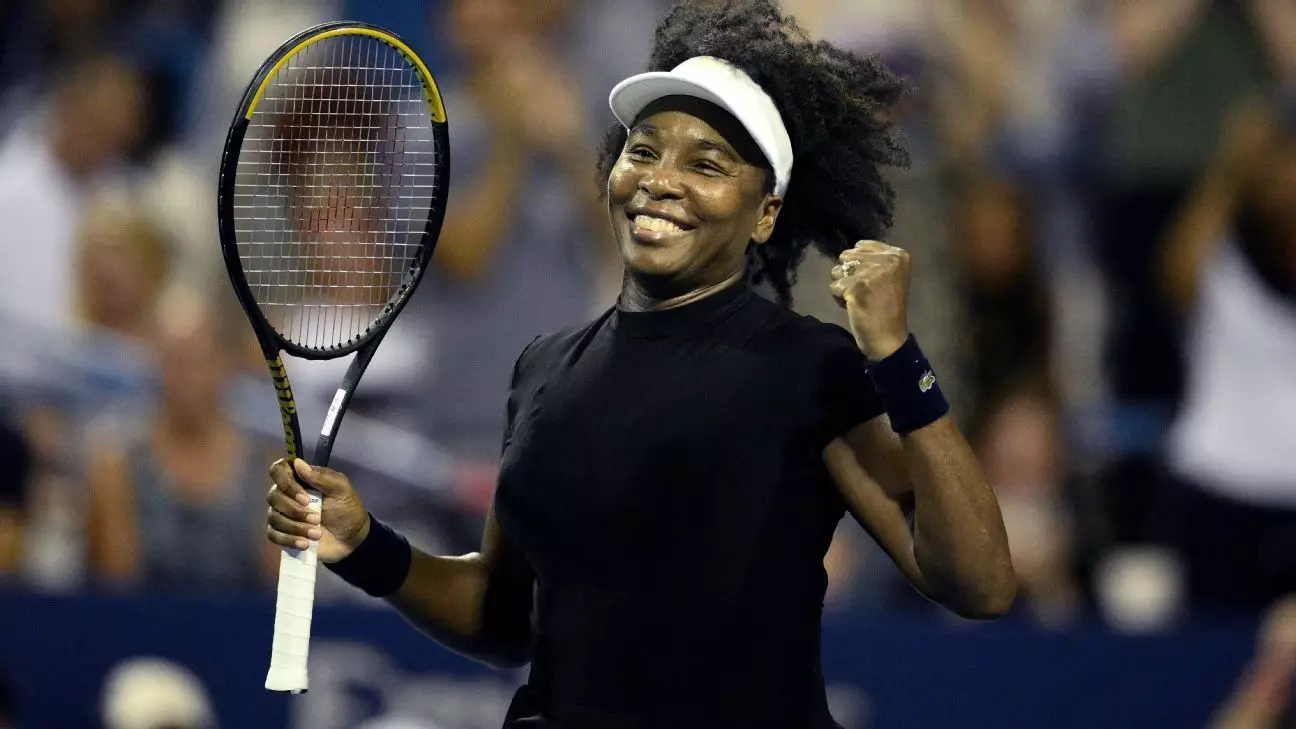Venus Williams’ recent performance at the DC Open is more than just a victory; it’s a manifest declaration of resilience and unbreakable determination. At the age of 45, with countless injuries and setbacks, she returned to the court expecting to compete, but what she achieved transcends mere participation. This moment symbolizes the extraordinary capacity of the human spirit to defy expectations, challenge limitations, and pursue excellence regardless of age or circumstances. Williams’ comeback is a provocative reminder that perseverance often outstrips talent, especially when the heart is committed to defying odds.
Her victory—becoming the second-oldest woman to claim a tour-level singles win—reverberates as an inspiring message to athletes and non-athletes alike. It demonstrates that age, while a factor in physical prowess, does not have to be a barrier to relevance, competitiveness, or achievement. What makes her comeback particularly compelling is not just the scoreboard, but the narrative of relentless effort, emotional endurance, and a love for the game that refuses to fade with time.
Challenges and Triumphs: More Than a Tennis Match
Williams’ journey back onto the court was wrought with obstacles that many might have accepted as insurmountable. After extensive surgery to remove uterine fibroids, her physical recovery was as much a mental battle as a physiological one. She openly shared the uncertainty and self-doubt that accompanied her training—weeks where progress felt elusive, and confidence ebbed. Her candidness about this internal struggle adds depth to her achievements, emphasizing that success isn’t just about physical ability but also mental resilience.
The significance of her winning stretches beyond the scoreline. It is a triumph over the ageist stereotypes that pervade sports, especially tennis, where youth is often celebrated as the ideal. By succeeding in an environment that is usually dominated by younger players, Williams challenges societal notions of aging, physical decline, and what it means to compete at a high level. Her willingness to face the fear of rusty form, to confront the possible indignity of defeat, and still push through epitomizes true grit.
A Cultural and Symbolic Victory
Williams’ comeback holds immense cultural significance, especially as an iconic Black woman athlete who has already carved her name into sports history. Her persistence exemplifies a broader narrative of resilience within marginalized communities, where barriers are often higher and expectations lower. Her resurgence becomes a source of inspiration not only for aspiring athletes but for anyone battling societal prejudices, health challenges, or personal limitations.
Her willingness to step back into competition amidst ongoing health concerns and her expressed hope for continued good health reflect more than personal ambition—they embody a fearless stance against the constraints imposed by age and adversity. Williams isn’t just fighting for her own recognition; she’s rewriting the story of what it means to remain vital in a career traditionally associated with youth and fading fame.
The Emotional Weight of the Moment
The palpable energy of the crowd, the roar of applause when she emerged, and her playful yet determined demeanor highlight a different kind of victory—one rooted in emotional fortitude. For Williams, this wasn’t merely about staying in the game; it was a message to herself and her supporters that she still belongs on the court. Her post-match celebration, including the signature pirouette and wave, was a celebration of victory over personal doubt, over aging, and over the physical setbacks she faced.
This emotional dimension underscores a vital truth: sport, at its core, is about more than the score. It’s about identity, passion, and resilience. Williams’ willingness to share her struggles and her joy reinforces that sportsmanship transcends the physical, tapping into deeper human qualities like grit, hope, and the refusal to be defined by previous successes or failures.
Redefining Longevity in Tennis
Historically, tennis has idolized the young and the vibrant, often dismissing the elderly as no longer competitive. Venus Williams’ performance challenges this narrative, suggesting that talent, skill, and competitive spirit can persist well beyond conventional expectations. Her victory echoes that of legends like Martina Navratilova, but it also sets a new benchmark—one that encourages seasoned athletes to believe that their careers aren’t necessarily over but can be reborn with passion and perseverance.
This resurgence prompts a reexamination of what “success” means as athletes age. Williams’ story advocates for a more inclusive and realistic perspective on athletic longevity. It suggests that the beauty of sport lies not solely in youthful exuberance but also in experience, mental toughness, and the unyielding desire to compete—qualities that do not diminish with age but can deepen and mature.
A Final Reflection: An Inspiration for the Ages
In today’s fast-paced, results-driven society, Venus Williams’ inspiring return is a sobering reminder of the importance of resilience, purpose, and long-term dedication. Her journey embodies the ideal that setbacks are temporary, and that with unwavering resolve, one can continue to evolve and achieve meaningful success—regardless of age. Her story encourages a redefinition of limitations and invites us all to view persistence as a powerful act of rebellion against societal and personal boundaries.
Williams’ victory at the DC Open is not just a tennis achievement; it is a powerful testament to the human capacity for renewal, proving that age is merely a number—one that can be challenged by relentless passion and unwavering effort.


Leave a Reply